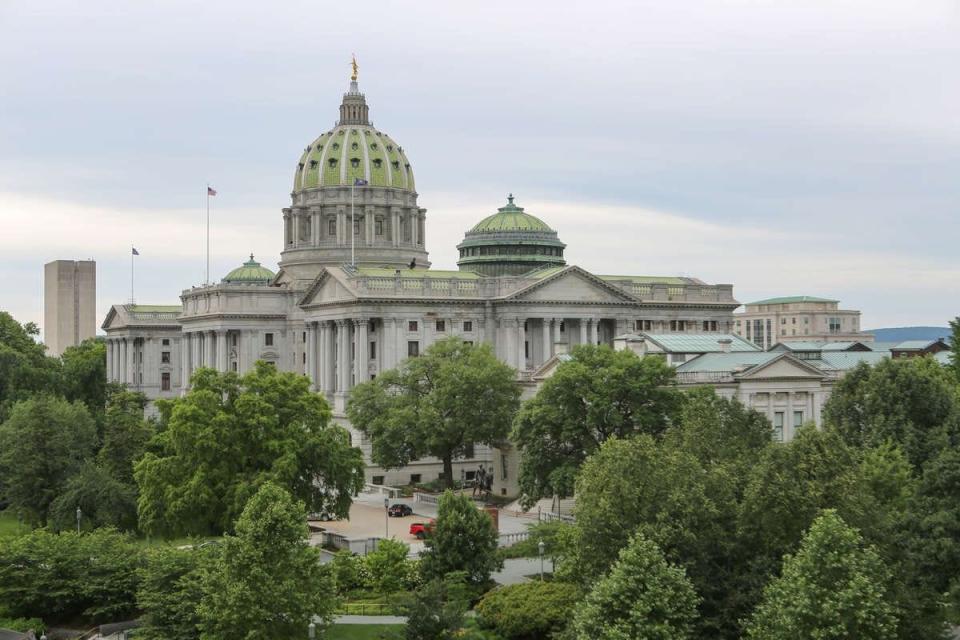These powerful unions helped flip the Pennsylvania House | Opinoin
Last November, Pennsylvania Democrats captured the state House of Representatives for the first time in 12 years. Behind the flip was a significant injection of campaign contributions by powerful public sector unions — according to a recent report by the Commonwealth Foundation on political spending during the 2021–22 election cycle.
Public sector unions, which should be representing a diversity of teachers and government workers, shamelessly fuel their one-sided political agenda by pouring money into elections.
Union executives’ political spending continues to break records. For the first time in Pennsylvania history, government unions’ combined political action committee spending surpassed $20 million in one election cycle, more than triple what they spent a decade ago. By comparison, the record-breaking spending in the seven-way Pennsylvania Supreme Court race in 2015 reached a total of $15.8 million across all candidates from all parties.
For the governor’s race alone, public sector union executives gave nearly $5.5 million in direct political contributions to Josh Shapiro’s campaign. Three unions in particular — the commonwealth’s largest teacher union, the Pennsylvania State Education Association, and two national unions representing state workers, the Service Employees International Union and the American Federation of State, County and Municipal Employees — reported more than $1 million each. It’s no coincidence that Shapiro must soon sit down and bargain with SEIU and AFSCME executives and that the PSEA expects huge returns in terms of state funding.
The numbers prove just how out-of-balance government union executives’ political spending has become.

In the 2021–22 cycle, public-sector unions sent virtually all (99.6%) of their political contributions for statewide offices to Democrats. Even including other races, the scales barely register — government unions sent a close 92.3 percent of their overall contributions to Democratic candidates and causes. All ten of the top ten legislative recipients of government union money were Democrats.
But perhaps the most concerning revelation is union executives’ injection of half a million dollars into 16 key state House races flipped each of those seats from Republican to Democrat, ultimately handing the Pennsylvania House to the Democratic Party.
This leverage allows union executives and their lobbyists to kill meaningful legislative reforms—reforms the public overwhelmingly supports. For example, according to recent polling, 82% of Pennsylvanians support a state constitutional amendment to limit spending increases, and 83% want to see the government abandon defined-benefit pension plans for 401(k)-style retirement plans. Moreover, Pennsylvanians want welfare-to-work reforms, school choice, safer communities, and a more transparent government.
Instead, public sector union executives support candidates and fund initiatives to grow government by raising taxes and spending more money on wasteful programs.
Many of these union executives support Shapiro’s new budget proposal and its $3 billion annual deficit, just as they supported former Governor Wolf’s proposal for the largest tax hike in Pennsylvania history. The ones who have criticized Shapiro’s budget proposal insist that he doesn’t spend enough money—that an 8 percent increase in education spending is somehow “a step backward.” They resist entitlement reforms, innovation in healthcare, and criminal justice reform—anything that might disrupt the status quo.
The sad truth is union executives—who decide where the political dollars go — don’t speak for the average union member. Union leaders don’t have to check with membership before supporting a candidate or taking a public position on political issues. They are completely unaccountable to membership, and they hurt the general public.
Any real attempt at fixing Harrisburg must include reforms that make public sector union executives more accountable.
For starters, any union that can’t get a majority vote of support, or “recertification,” from the teachers and other public employees they represent should be kicked out or replaced. A reform requiring regular recertification would make union executives accountable and refocus them on representing members instead of playing politics.
Teachers and other government workers should have a voice in who represents them and what their membership dues support. Government unions are not only a powerful force in elections but also a roadblock to popular reforms that the public — even their members — support. Harrisburg needs to empower workers to hold their union executives accountable.
David Osborne is the senior fellow of labor policy with the Commonwealth Foundation, Pennsylvania’s free-market think tank.
This article originally appeared on Bucks County Courier Times: Pennsylvania public employee unions influence politics

